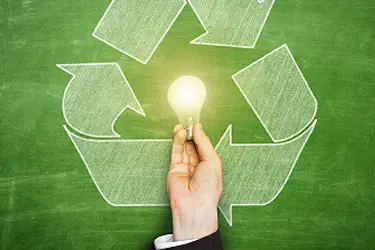PHOTO
14 December 2016
DUBAI: The renewable energy industry is bracing itself for a critical year of positive activity in 2017 as key markets across the Gulf and wider Middle East and North Africa (MENA) accelerate their energy diversification programs to meet national targets, according to Nasser Saidi, chairman of the Clean Energy Business Council (CEBC).
Speaking ahead of CEBC’s fifth annual Clean Energy Summit taking place on Wednesday, Saidi said that developers and financiers will head into 2017 with full of expectations that the region’s shift to low carbon energy sources will accelerate, led by markets such as Saudi Arabia.
In line with the National Transformation Plan, Saudi Arabia plans to install 3.5GW of renewables by 2020.
The chairman said that 2016 has been a positive year in which record low bids for utility scale solar power, primarily in the UAE, have positively and irreversibly changed the dynamic of solar.
He added: “But this is only the beginning of what we believe to be a paradigm shift in the pace of clean energy deployment in this region.”
The chairman also said: “Next year will be critical to the long term success of the energy diversification strategies across the Middle East, as we close in on the 2020 milestone.”
“What we see from markets such as Saudi Arabia in particular during the early part of 2017 will be a key indicator of renewed momentum – beyond 2017 – leading a major shift in the regional dynamic for renewables for the next decade and beyond.”
Kuwait and Bahrain are targeting five percent of installed capacity from renewables by the same date. The United Arab Emirates (UAE) plans to derive 21 percent of its power from clean sources by 2021. Jordan will connect 1,800 MW of renewable power to its national grid by the end of 2018 and Egypt plans to raise its share of renewable energy to 20 percent by 2022. In addition, Morocco is expected to have 42 percent of its installed energy capacity from renewable sources by 2020.
Thierry Tardy, executive director, acquisitions and project finance, ACWA Power a sponsor of the MENA Clean Energy Summit said: “Renewable energy sources are more cost-competitive than ever, and the Middle East, driven by the GCC, has tripled its investments in renewables from 2015.”
Tardy said: “As a partner to governments in the UAE, Morocco, Jordan and South Africa, ACWA Power will continue to help the GCC realize its energy capacity of 80GW by 2030, reduce CO2 emissions, and create sustainable jobs in the field of clean energy in 2017 and beyond. This year’s Clean Energy Summit is an opportunity for us all to reaffirm the region’s clean energy roadmap, and set an actionable example for the rest of the world.”
DUBAI: The renewable energy industry is bracing itself for a critical year of positive activity in 2017 as key markets across the Gulf and wider Middle East and North Africa (MENA) accelerate their energy diversification programs to meet national targets, according to Nasser Saidi, chairman of the Clean Energy Business Council (CEBC).
Speaking ahead of CEBC’s fifth annual Clean Energy Summit taking place on Wednesday, Saidi said that developers and financiers will head into 2017 with full of expectations that the region’s shift to low carbon energy sources will accelerate, led by markets such as Saudi Arabia.
In line with the National Transformation Plan, Saudi Arabia plans to install 3.5GW of renewables by 2020.
The chairman said that 2016 has been a positive year in which record low bids for utility scale solar power, primarily in the UAE, have positively and irreversibly changed the dynamic of solar.
He added: “But this is only the beginning of what we believe to be a paradigm shift in the pace of clean energy deployment in this region.”
The chairman also said: “Next year will be critical to the long term success of the energy diversification strategies across the Middle East, as we close in on the 2020 milestone.”
“What we see from markets such as Saudi Arabia in particular during the early part of 2017 will be a key indicator of renewed momentum – beyond 2017 – leading a major shift in the regional dynamic for renewables for the next decade and beyond.”
Kuwait and Bahrain are targeting five percent of installed capacity from renewables by the same date. The United Arab Emirates (UAE) plans to derive 21 percent of its power from clean sources by 2021. Jordan will connect 1,800 MW of renewable power to its national grid by the end of 2018 and Egypt plans to raise its share of renewable energy to 20 percent by 2022. In addition, Morocco is expected to have 42 percent of its installed energy capacity from renewable sources by 2020.
Thierry Tardy, executive director, acquisitions and project finance, ACWA Power a sponsor of the MENA Clean Energy Summit said: “Renewable energy sources are more cost-competitive than ever, and the Middle East, driven by the GCC, has tripled its investments in renewables from 2015.”
Tardy said: “As a partner to governments in the UAE, Morocco, Jordan and South Africa, ACWA Power will continue to help the GCC realize its energy capacity of 80GW by 2030, reduce CO2 emissions, and create sustainable jobs in the field of clean energy in 2017 and beyond. This year’s Clean Energy Summit is an opportunity for us all to reaffirm the region’s clean energy roadmap, and set an actionable example for the rest of the world.”
© Arab News 2016





















